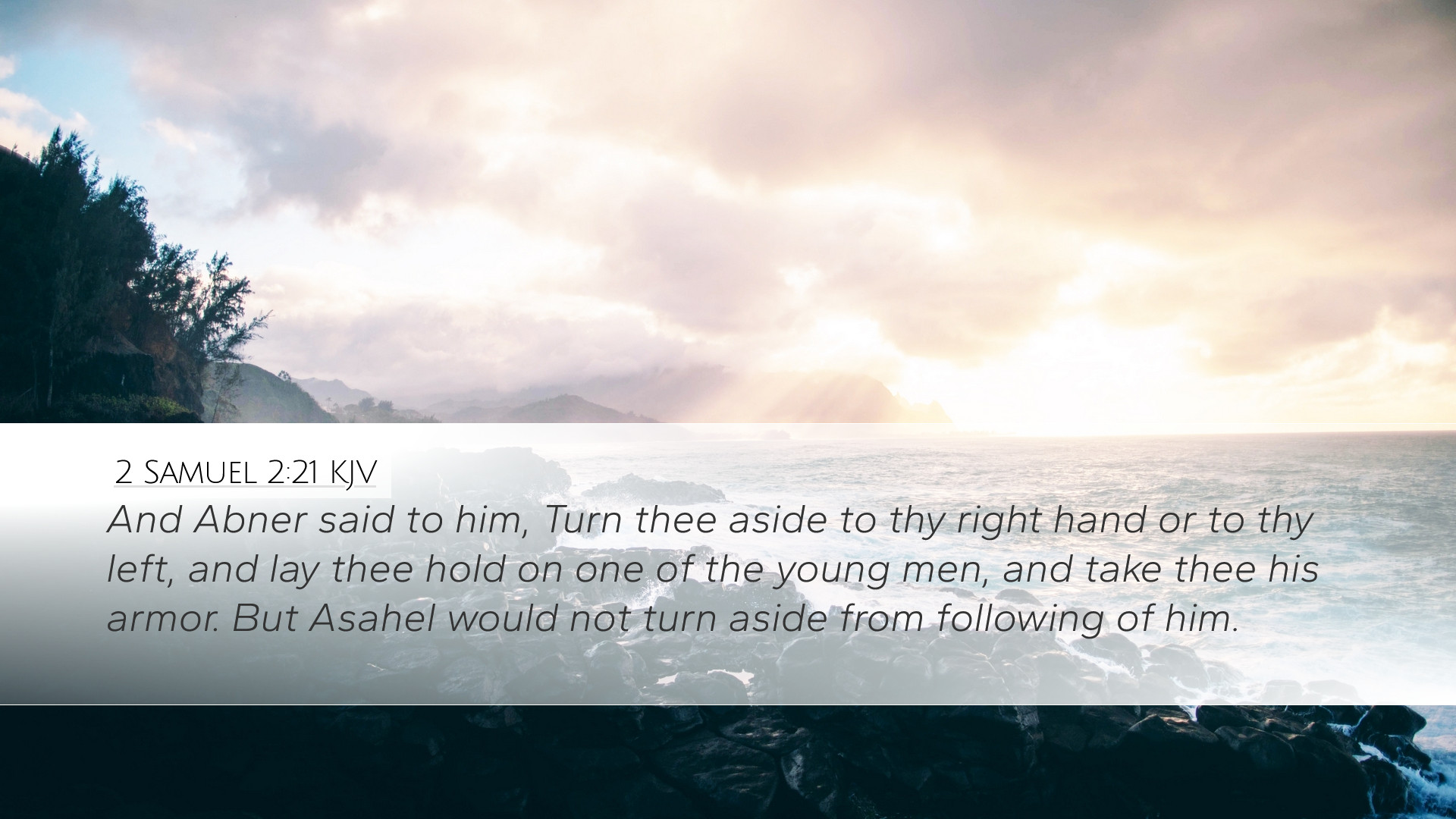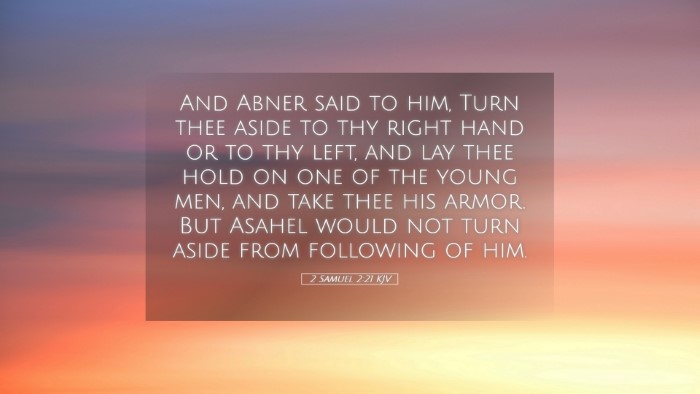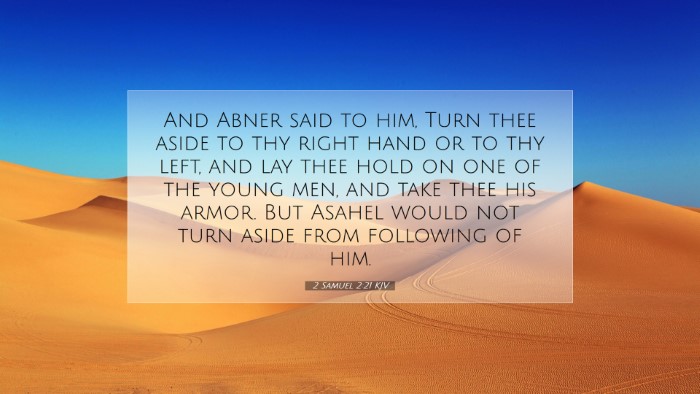Commentary on 2 Samuel 2:21
Bible Verse: "And Joab said to Abishai, 'Let not the young men of the men of Israel divide themselves from the servants of David; for the Lord hath given us a great slaughter this day.'" (2 Samuel 2:21)
Introduction
This verse occurs in a critical narrative in the history of Israel, showing the complexities of human ambition, divine providence, and the nature of conflict. The background of this event stems from the divided loyalties following the death of Saul, which culminated in a military conflict between the house of Saul and the house of David. Joab, as one of David's most trusted military leaders, speaks to Abishai, emphasizing the significance of unity among their forces.
Context and Background
The political landscape at this time was tumultuous, with Abner, the commander of Saul's army, contesting David's rise to kingship. Joab's statement reflects the need to maintain focus and unity in the face of division, specifically concerning the threat posed by Abner and the forces loyal to Saul. This situation exemplifies the broader theme of contested leadership in Israel and the divine orchestration of events as God established David's reign.
Historical Significance
- Leadership Struggles: The tension between David and Saul's factions symbolizes the struggles faced by leaders in times of transition.
- The Consequences of Division: Joab’s warning reveals the dangers inherent in splitting loyalties, which is a lesson that resonates in ecclesiastical structures today.
- Military Strategy: Joab’s caution emphasizes the importance of strategy and unity in warfare, reflecting principles that are applicable in both physical and spiritual battles.
Theological Implications
This verse carries significant theological implications, particularly regarding the sovereignty of God in human affairs and the responsibility of leaders to uphold unity among their followers.
Divine Sovereignty
God’s Hand in Conflict: The mention of "the Lord hath given us a great slaughter this day" indicates an awareness of God's involvement in the outcomes of human conflict. It suggests that victories are not merely the result of human effort but are underpinned by divine purpose.
The Role of Human Agency: While acknowledging God's sovereignty, the actions and decisions of Joab and David's men illustrate the human contribution to God's plan, demonstrating how divine purposes are realized through human actions, often amid struggles and trials.
Unity Among Believers
Joab’s exhortation to prevent division serves as a poignant reminder for contemporary ecclesiastical communities. The New Testament frequently admonishes believers to maintain the unity of the Spirit (Ephesians 4:3), and this verse echoes that call.
The Call to Unity: The phrase "let not the young men...divide themselves" highlights the need for cohesiveness amidst conflict. This is not only a military necessity but mirrors the call for unity in the Body of Christ, which is vital for spiritual warfare.
Insights from Commentaries
Matthew Henry
Matthew Henry notes that Joab’s leadership shines through in this moment of critical decision-making. He highlights Joab’s role in rallying the troops and pushing for a focused vision against their adversaries, illustrating the necessity of strong leadership during uncertain times. His reflections encourage modern leaders to remain steadfast and united against challenges, promoting the idea that division within ranks can lead to destruction.
Albert Barnes
Albert Barnes provides insights into the significance of Joab’s military acumen, suggesting that his statement reflects profound wisdom in the heat of battle. He emphasizes the principle of unity over individual aspirations, particularly the implications of divided loyalty which can lead to suboptimal outcomes. Barnes underscores that this not only applies to physical battles but also extends to the Church, where harmony must prevail for effective ministry.
Adam Clarke
Adam Clarke elaborates on the dynamics of the moment, noting that Joab’s remarks indicate a clear understanding of the spiritual undertones of the confrontation. He emphasizes that recognizing God’s hand in battles enables leaders to confront their challenges with courage and faith. Clarke’s commentary reminds contemporary readers that acknowledging divine sovereignty should galvanize the faithful toward greater unity and purpose in their mission.
Conclusion
In conclusion, 2 Samuel 2:21 offers profound insights for pastors, students, theologians, and Bible scholars alike. Joab’s leadership and the thematic elements of unity, divine sovereignty, and human responsibility are crucial in understanding the nature of conflict and the pursuit of God’s purposes. This verse serves as both a historical account and a timeless exhortation for spiritual leaders to recognize the importance of unity and reliance on God in navigating the complexities of leadership and communal faith.


